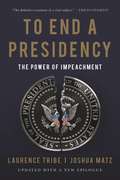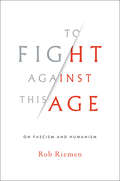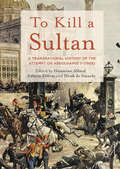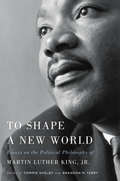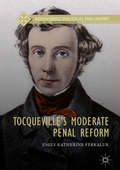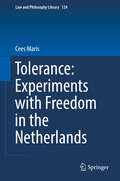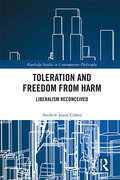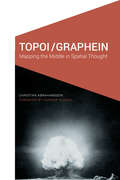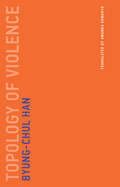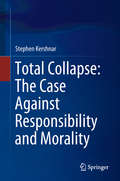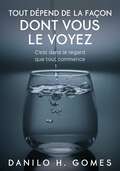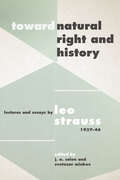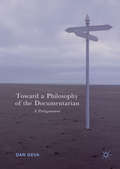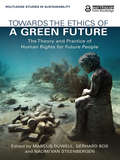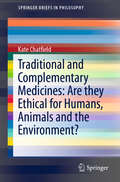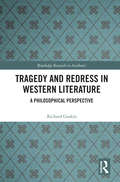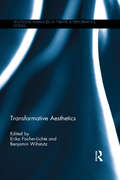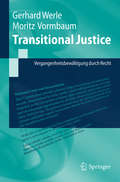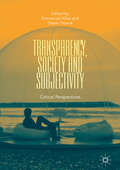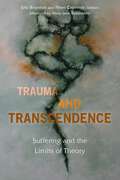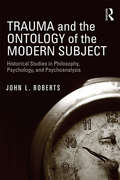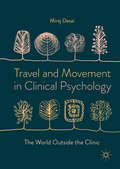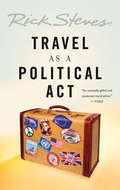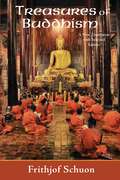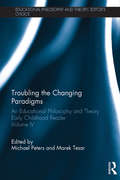- Table View
- List View
To End a Presidency: The Power of Impeachment
by Laurence Tribe Joshua Matz<P>The history and future of our democracy's ultimate sanction, presidential impeachment, and a guide to how it should be used now <P> To End a Presidency addresses one of today's most urgent questions: when and whether to impeach a president. <P>Laurence Tribe and Joshua Matz provide an authoritative guide to impeachment's past and a bold argument about its proper role today. In an era of expansive presidential power and intense partisanship, we must rethink impeachment for the twenty-first century. <P>Of impeachments, one Constitutional Convention delegate declared, "A good magistrate will not fear them. A bad one will be kept in fear of them." <P>To End a Presidency is an essential book for all Americans seeking to understand how this crucial but fearsome power should be exercised.
To Fight Against This Age: On Fascism And Humanism
by Rob Riemen“This is a book for people who want the West to regain its moral high ground, and who want to think hard about how to help achieve that.” —Anne Applebaum An international bestseller, To Fight Against This Age consists of two beautifully written, cogent, and urgent essays about the rise of fascism and the ways in which we can combat it. In “The Eternal Return of Fascism,” Rob Riemen explores the theoretical weakness of fascism, which depends on a politics of resentment, the incitement of anger and fear, xenophobia, the need for scapegoats, and its hatred of the life of the mind. He draws on history and philosophy as well as the essays and novels of Thomas Mann and Albert Camus to explain the global resurgence of fascism, often disguised by its false promises of ushering in freedom and greatness. Riemen’s own response to what he sees as the spiritual crisis of our age is articulated in “The Return of Europa,” a moving story about the meaning of European humanism with its universal values of truth, beauty, justice, and love for life—values that are the origin and basis of a democratic civilization. To Fight Against This Age is as timely as it is timeless, to be read by those who want to understand and change the world in which they live.
To Kill a Sultan
by Houssine Alloul Edhem Eldem Henk De SmaeleThis book explores an event described by the Times as 'one of the greatest and most sensational political conspiracies of modern times'. On 21 July 1905, just after the Friday Prayer at the Yıldız Hamidiye Mosque in Istanbul, a car bomb exploded and left 26 dead with another 58 wounded. Sultan Abdülhamid II, the target of the attack, remained unscathed. The Ottoman police soon discovered that Armenian revolutionaries were behind the plot and several people were arrested and convicted, among them the Belgian anarchist Edward Joris. His incarceration sparked international reaction and created a diplomatic conflict. The assassination attempt failed, the events faded from memory, and the plot became a footnote in early twentieth-century history. This book rediscovers the conspiracy as a transnational moment in late Ottoman history, opening a window on key themes in modern history, such as international law, terrorism, Orientalism, diplomacy, anarchism, imperialism, nationalism, mass media and humanitarianism. It provides an original look on the many trans- and international links between the Ottoman Empire, Europe and the rest of the world at the start of the twentieth century.
To Shape a New World: Essays on the Political Philosophy of Martin Luther King, Jr.
by Tommie ShelbyOn the 50th anniversary of Martin Luther King, Jr.’s, assassination, his political thought remains underappreciated. Tommie Shelby and Brandon Terry, along with a cast of distinguished contributors, engage critically with King’s understudied writings on a wide range of compelling, challenging topics and rethink the legacy of this towering figure.
Tocqueville’s Moderate Penal Reform (Recovering Political Philosophy)
by Emily Katherine FerkalukThis book presents an interpretive analysis of the major themes and purpose of Alexis de Tocqueville’s and Gustave de Beaumont’s first work, On the Penitentiary System, thereby offering new insights into Tocqueville as a moderate liberal statesman. The book explores Tocqueville’s thinking on penitentiaries as the best possible solution to recidivism, his approach to colonial imperialism, and his arguments on moral reformation of prisoners through a close reading of Tocqueville’s first published text. The unifying political concept of all three discussions is Tocqueville’s underlying concern to pursue moderation between institutional and imaginative extremes in order to maintain liberal values. In both thinking moderately and advocating for moderate political action, Tocqueville’s On the Penitentiary System renews an emphasis on the importance of civic engagement and the balance between philosophy and praxis.
Tolerance: Experiments with Freedom in the Netherlands (Law and Philosophy Library #124)
by Cees MarisThis book presents a collection of philosophical essays on freedom and tolerance in the Netherlands. It explores liberal freedom and its limits in areas such as freedom of speech, public reason, sexual morality, euthanasia, drugs policy, and minority rights. The book takes Dutch practices as exemplary test cases for the principled discussions on these subjects from the perspective of political liberalism. Indeed, the Netherlands may be viewed as a social laboratory in human tolerance. During the Cultural Revolution of the 1960s, Holland took the lead in a global emancipation process towards a society based on equal freedom. It was the first country to legalize euthanasia, soft drugs and gay marriage. In the final sections, the book examines the question of whether the political murders on the politician Pim Fortuyn and the film director Theo van Gogh, the reactions to Ayaan Hirsi Ali’s film Submission, as well as the success of the populist politician Geert Wilders are signs of the end of Dutch tolerance. Although it recognizes that the political climate has taken a conservative turn, the book shows that the Netherlands still shows remarkable tolerance.
Toleration and Freedom from Harm: Liberalism Reconceived (Routledge Studies in Contemporary Philosophy)
by Andrew Jason CohenToleration matters to us all. It contributes both to individuals leading good lives and to societies that are simultaneously efficient and just. There are personal and social matters that would be improved by taking toleration to be a fundamental value. This book develops and defends a full account of toleration—what it is, why and when it matters, and how it should be manifested in a just society. Cohen defends a normative principle of toleration grounded in a new conception of freedom as freedom from harm. He goes on to argue that the moral limits of toleration have been reached only when freedom from harm is impinged. These arguments provide support for extensive toleration of a wide range of individual, familial, religious, cultural, and market activities. Toleration Matters will be of interest to political philosophers and theorists, legal scholars, and those interested in matters of social justice.
Topoi/Graphein: Mapping the Middle in Spatial Thought (Cultural Geographies + Rewriting the Earth)
by Christian Abrahamsson Gunnar OlssonIn Topoi/Graphein Christian Abrahamsson maps the paradoxical limit of the in-between to reveal that to be human is to know how to live with the difference between the known and the unknown. Using filmic case studies, including Code Inconnu, Lord of the Flies, and Apocalypse Now, and focusing on key concerns developed in the works of the philosophers Deleuze, Olsson, and Wittgenstein, Abrahamsson starts within the notion of fixed spatiality, in which human thought and action are anchored in the given of identity. He then moves through a social world in which spatiotemporal transformations are neither fixed nor taken for granted. Finally he edges into the pure temporality that lies beyond the maps of fixed points and social relations. Each chapter is organized into two subjects: topoi, or excerpts from the films, and graphein, the author’s interpretation of presented theories to mirror the displacements, transpositions, juxtapositions, fluctuations, and transformations between delimited categories. A landmark work in the study of human geography, Abrahamsson’s book proposes that academic and intellectual attention should focus on the spatialization between meaning and its materialization in everyday life.
Topology of Violence (Untimely Meditations #9)
by Byung-Chul HanOne of today's most widely read philosophers considers the shift in violence from visible to invisible, from negativity to excess of positivity. Some things never disappear—violence, for example. Violence is ubiquitous and incessant but protean, varying its outward form according to the social constellation at hand. In Topology of Violence, the philosopher Byung-Chul Han considers the shift in violence from the visible to the invisible, from the frontal to the viral to the self-inflicted, from brute force to mediated force, from the real to the virtual. Violence, Han tells us, has gone from the negative—explosive, massive, and martial—to the positive, wielded without enmity or domination. This, he says, creates the false impression that violence has disappeared. Anonymized, desubjectified, systemic, violence conceals itself because it has become one with society. Han first investigates the macro-physical manifestations of violence, which take the form of negativity—developing from the tension between self and other, interior and exterior, friend and enemy. These manifestations include the archaic violence of sacrifice and blood, the mythical violence of jealous and vengeful gods, the deadly violence of the sovereign, the merciless violence of torture, the bloodless violence of the gas chamber, the viral violence of terrorism, and the verbal violence of hurtful language. He then examines the violence of positivity—the expression of an excess of positivity—which manifests itself as over-achievement, over-production, over-communication, hyper-attention, and hyperactivity. The violence of positivity, Han warns, could be even more disastrous than that of negativity. Infection, invasion, and infiltration have given way to infarction.
Total Collapse: The Case Against Responsibility and Morality
by Stephen KershnarThis book argues that there is no morality and that people are not morally responsible for what they do. In particular, it argues that what people do is neither right nor wrong and that they are neither praiseworthy nor blameworthy for doing it. Morality and moral responsibility lie at the heart of how we view the world. In our daily life, we feel that people act rightly or wrongly, make the world better or worse, and are virtuous or vicious. These policies are central to our justifying how we see the world and treat others. In this book, the author argues that our views on these matters are false. He presents a series of arguments that threaten to undermine our theoretical and practical worldviews. The philosophical costs of denying moral responsibility and morality are enormous. It does violence to philosophical positions that many people took a lifetime to develop. Worse, it does violence to our everyday view of people. A host of concepts that we rely on daily (praiseworthy, blameworthy, desert, virtue, right, wrong, good, bad, etc.) fail to refer to any property in the world and are thus deeply mistaken. This book is of interest to philosophers, lawyers, and humanities professors as well as people interested in morality, law, religion, and public policy.
Tout Dépend de la Façon Dont vous le voyez: C’est dans le regard que tout commence
by Danilo Henrique Gomes Berenice Arrieta CortésDans "Tout dépend de la façon dont vous le voyez", l'auteur propose une vision différente du monde et des problèmes de la vie quotidienne. Basé sur la théologie et la phénoménologie, la fameuse ligne de pensée philosophique, le lecteur peut reprogrammer son esprit pour profiter de la vie de manière simple. Ces dernières années, les vieilles pensées et théories de scientifiques comme William James, Edmund Husserl, Jean-Paul Sartre et d'autres sont analysées, ainsi que la façon dont celles-ci devraient être appliquées dans la vie quotidienne sont exposées dans les pages de cet ouvrage. Votre regard détermine votre mode de vie et cela peut être modifié, par conséquent, plongez-vous dans ce livre et changez votre façon de voir le monde.
Toward "Natural Right and History": Lectures and Essays by Leo Strauss, 1937–1946
by Leo Strauss J. A. Colen Svetozar MinkovNatural Right and History is widely recognized as Strauss’s most influential work. The six lectures, written while Strauss was at the New School, and a full transcript of the 1949 Walgreen Lectures show Strauss working toward the ideas he would present in fully matured form in his landmark work. In them, he explores natural right and the relationship between modern philosophers and the thought of the ancient Greek philosophers, as well as the relation of political philosophy to contemporary political science and to major political and historical events, especially the Holocaust and World War II. Previously unpublished in book form, Strauss’s lectures are presented here in a thematic order that mirrors Natural Right and History and with interpretive essays by J. A. Colen, Christopher Lynch, Svetozar Minkov, Daniel Tanguay, Nathan Tarcov, and Michael Zuckert that establish their relation to the work. Rounding out the book are copious annotations and notes to facilitate further study.
Toward a Philosophy of the Documentarian: A Prolegomenon
by Dan GevaThe theme of this book is the documentarian—what the documentarian is and how we can understand it as a concept. Working from the premise that the documentarian is a special—extended—sign, the book develops a model of a quadruple sign structure for-and-of the documentarian, growing out of enduring traditions in philosophy, semiotics, psychoanalysis, and documentary theory. Dan Geva investigates the intellectual premise that allows the documentarian to show itself as an extremely sophisticated, creative, and purposeful being-in-the-world—one that is both embedded in its own history and able to manifest itself throughout its entire documentary life project, as a stand-alone conceptual phase in the history of ideas.
Towards the Ethics of a Green Future: The Theory and Practice of Human Rights for Future People (Routledge Studies in Sustainability)
by Gerhard Bos Marcus Düwell Naomi Van SteenbergenWhat are our obligations towards future generations who stand to be harmed by the impact of today’s environmental crises? This book explores ecological sustainability as a human rights issue and examines what our long-term responsibilities might be. This interdisciplinary collection of chapters provides a basis for understanding the debates on the provision of sustainability for future generations from a diverse set of theoretical standpoints. Covering a broad range of perspectives such as risk and uncertainty, legal implementation, representation, motivation and economics, Towards the Ethics of a Green Future sets out the key questions involved in this complex ethical issue. The contributors bring theoretical discussions to life through the use of case studies and real-world examples. The book also includes clear and tangible recommendations for policymakers on how to put the suggestions proposed within the book into practice. This book will be of great interest to all researchers and students concerned with issues of sustainability and human rights, as well as scholars of environmental politics, law and ethics more generally.
Traditional and Complementary Medicines: Are they Ethical for Humans, Animals and the Environment? (SpringerBriefs in Philosophy)
by Kate ChatfieldThis book provides a systematic analysis of the ethical implications of traditional and complementary medicine (T&CM), focusing on pragmatic solutions. The author uses a bioethical methodology called the “Ethical Matrix,” to consider the impact of T&CM use for animals and the environment as well as for humans.A systematic search of the literature reveals that most published ethical concerns are related to the safety of T&CM use for humans. However, application of the Ethical Matrix demonstrates that the ethical implications for T&CM use are much broader. In this book, the author analyses the most serious implications, including adverse events related to homeopathy, the use of animals in T&CM products, and the impact of herbal medicine on the environment. Comparisons with the ethical implications of conventional biomedicine help readers to contextualise debate, and highlight aspects that may be unique to T&CM. Globally, many high-level health policy makers promote T&CM as an accessible and affordable healthcare option. However, their use is considered by some to be a waste of resources, unscientific, and unethical. Offering a frank analysis of this largely ignored field of healthcare ethics, this book is both timely and essential. It helps patients, policy makers, practitioners, researchers, and students gain the knowledge they need to make more informed decisions.
Tragedy and Redress in Western Literature: A Philosophical Perspective (Routledge Research in Aesthetics)
by Richard GaskinThis book offers a unique interpretation of tragic literature in the Western tradition, deploying the method and style of Analytic philosophy. Richard Gaskin argues that tragic literature seeks to offer moral and linguistic redress (compensation) for suffering. Moral redress involves the balancing of a protagonist’s suffering with guilt (and vice versa): Gaskin contends that, to a much greater extent than has been recognized by recent critics, traditional tragedy represents suffering as incurred by avoidable and culpable mistakes of a cognitive nature. Moral redress operates in the first instance at the level of the individual agent. Linguistic redress, by contrast, operates at a higher level of generality, namely at the level of the community: its fundamental motor is the sheer expressibility of suffering in words. Against many writers on tragedy, Gaskin argues that language is competent to express pain and suffering, and that tragic literature has that expression as one its principal purposes. The definition of tragic literature in this book is expanded to include more than stage drama: the treatment stretches from the Classical and Medieval periods through to the early twentieth century. There is a special focus on Sophocles, but Gaskin takes account of most other major tragic authors in the European tradition, including Homer, Aeschylus, Euripides, Virgil, Seneca, Chaucer, Marlowe, Shakespeare, Corneille, Racine, Lessing, Goethe, Schiller, Kleist, Büchner, Ibsen, Hardy, Kafka, and Mann; lesser-known areas, such as Renaissance neo-Latin tragedy, are also covered. Among theorists of tragedy, Gaskin concentrates on Aristotle and Bradley; but the contributions of numerous contemporary commentators are also assessed. Tragedy and Redress in Western Literature: A Philosophical Perspective offers a new and genuinely interdisciplinary perspective on tragedy that will be of considerable interest both to philosophers of literature and to literary critics.
Transformative Aesthetics: A New Aesthetics (Routledge Advances in Theatre & Performance Studies)
by Erika Fischer-Lichte Benjamin WihstutzAesthetic theory in the West has, until now, been dominated by ideas of effect, autonomy, and reception. Transformative Aesthetics uncovers these theories’ mutual concern with the transformation of those involved. From artists to spectators, readers, listeners, or audiences, the idea of transformation is one familiar to cultures across the globe. Transformation of the individual is only one part of this aesthetic phenomenon, as contemporary artists are increasingly called upon to have a transformative, sustainable impact on society at large. To this end, Erika Fischer Lichte and Benjamin Wihstutz present a series of fresh perspectives on the discussion of aesthetics, uniting Western theory with that of India, China, Australia, and beyond. Each chapter of Transformative Aesthetics focuses on a different approach to transformation, from the foundations of aesthetics to contemporary theories, breaking new ground to establish a network of thought that spans theatre, performance, art history, cultural studies, and philosophy.
Transitional Justice: Vergangenheitsbewältigung durch Recht (Springer-Lehrbuch)
by Gerhard Werle Moritz VormbaumDieses Buch bietet die erste systematische Gesamtdarstellung zum Thema Transitional Justice in deutscher Sprache. Der Ausdruck „Transitional Justice“ hat sich zum Ende des Kalten Krieges beim Übergang von Diktaturen zur Demokratie etabliert und dient als Leitbegriff zur Aufarbeitung von Systemunrecht. Das vorliegende Werk entwickelt die Grundprinzipien von Transitional Justice und behandelt die fünf wesentlichen Aufarbeitungsoptionen – Strafverfolgung, Amnestien, Wahrheitskommissionen, Wiedergutmachung sowie die Überprüfung des öffentlichen Dienstes. Aktuelle Herausforderungen werden diskutiert. Reichhaltiges Anschauungsmaterial beleuchtet über 50 Aufarbeitungssituationen. Das Buch verfolgt einen doppelten Zweck: Es soll zum einen Rechtswissenschaftlerinnen und Rechtswissenschaftlern sowie praktisch tätigen Juristinnen und Juristen den Zugang zur Materie erleichtern. Zum anderen soll es benachbarten Disziplinen einen konzentrierten Einblick in die rechtlichen Leitprinzipien von Transitional Justice ermöglichen.
Transparency, Society and Subjectivity: Critical Perspectives
by Emmanuel Alloa Dieter ThomäThis book critically engages with the idea of transparency whose ubiquitous demand stands in stark contrast to its lack of conceptual clarity. The book carefully examines this notion in its own right, traces its emergence in Early Modernity and analyzes its omnipresence in contemporary rhetoric. Today, transparency has become a catchword outplaying other Enlightenment values like empowerment, sincerity and the notion of a public sphere. In a suspicious manner, transparency is entangled in the discourses on power, surveillance, and self-exposure. Bringing together prominent scholars from the emerging field of Critical Transparency Studies, the book offers a map of the various sites at which transparency has become virulent and connects the dots between past and present. By studying its appearances in today’s hyper-mediated economies of information and by linking it back to its historical roots, the book analyzes transparency and its discontents, and scrutinizes the reasons why it has become the imperative of a supposedly post-ideological age.
Trauma and Transcendence: Suffering and the Limits of Theory
by Eric Boynton and Peter CaprettoTrauma theory has become a burgeoning site of research in recent decades, often demanding interdisciplinary reflections on trauma as a phenomenon that defies disciplinary ownership. While this research has always been challenged by the temporal, affective, and corporeal dimensions of trauma itself, trauma theory now faces theoretical and methodological obstacles given its growing interdisciplinarity. Trauma and Transcendence gathers scholars in philosophy, theology, psychoanalysis, and social theory to engage the limits and prospects of trauma’s transcendence. This volume draws attention to the increasing challenge of deciding whether trauma’s unassimilable quality can be wielded as a defense of traumatic experience against reductionism, or whether it succumbs to a form of obscurantism.Contributors: Eric Boynton, Peter Capretto, Tina Chanter, Vincenzo Di Nicola, Ronald Eyerman, Donna Orange, Shelly Rambo, Mary-Jane Rubenstein, Hilary Jerome Scarsella, Eric Severson, Marcia Mount Shoop, Robert D. Stolorow, George Yancy.
Trauma and the Ontology of the Modern Subject: Historical Studies in Philosophy, Psychology, and Psychoanalysis
by John L. RobertsRecent scholarship has inquired into the socio-historical, discursive genesis of trauma. Trauma and the Ontology of the Modern Subject, however, seeks what has not been actualized in trauma studies – that is, how the necessity and unassailable intensity of trauma is fastened to its historical emergence. We must ask not only what trauma means for the individual person’s biography, but also what it means to be the historical subject of trauma. In other words, how does being human in this current period of history implicate one’s lived possibilities that are threatened, and perhaps framed, through trauma? Foucauldian sensibilities inform a critical and structural analysis that is hermeneutically grounded. Drawing on the history of ideas and on Lacan’s work in particular, John L. Roberts argues that what we mean by trauma has developed over time, and that it is intimately tied with an ontology of the subject; that is to say, what it is to be, and means to be human. He argues that modern subjectivity – as articulated by Heidegger, Levinas, and Lacan – is structurally traumatic, founded in its finitude as self-withdrawal in time, its temporal self-absence becoming the very conditions for agency, truth and knowledge. The book also argues that this fractured temporal horizon – as an effect of an interrupting Otherness or alterity – is obscured through the discourses and technologies of the psy-disciplines (psychiatry, psychology, and psychotherapy). Consideration is given to social, political, and economic consequences of this concealment. Trauma and the Ontology of the Modern Subject will be of enduring interest to psychoanalysts and psychotherapists as well as scholars of philosophy and cultural studies.
Travel and Movement in Clinical Psychology: The World Outside The Clinic
by Miraj DesaiThis book concerns clinical psychology, but it is most concerned with the world outside the clinic. That world—where culture, history, and economy are found—radically impacts the public’s mental health. However these worldly considerations often do not feature centrally in the science and practice of clinical psychology, a subfield of psychology seemingly dedicated to mental health. Desai offers a corrective by travelling out of the clinic and into the world, exploring ideas, movements, and thinkers that help broaden our approach to well-being, by situating it within its cultural, historical, and sociopolitical contexts. The book aims to be an intercultural journey itself—encountering Buddhism, phenomenology, Edmund Husserl, Mahatma Gandhi, and Rev. Dr. Martin Luther King, Jr. along the way. Featuring a Foreword by Jeffrey Sachs, the book positions pressing matters such as social justice, racial justice, and environmental justice as integral components of good mental health work. The book will be of interest to readers interested in cultural and community approaches to psychological science and practice.
Travel as a Political Act (Rick Steves)
by Rick StevesChange the world one trip at a time. In this illuminating collection of stories and lessons from the road, acclaimed travel writer Rick Steves shares a powerful message that resonates now more than ever.With the world facing divisive and often frightening events, from Trump, Brexit, and Erdogan, to climate change, nativism, and populism, there's never been a more important time to travel.Rick believes the risks of travel are widely exaggerated, and that fear is for people who don't get out much. After years of living out of a suitcase, he still marvels at how different cultures find different truths to be self-evident. By sharing his experiences from Europe, Central America, Asia, and the Middle East, Rick shows how we can learn more about own country by viewing it from afar.With gripping stories from Rick's decades of exploration, this fully revised edition of Travel as a Political Act is an antidote to the current climate of xenophobia. When we travel thoughtfully, we bring back the most beautiful souvenir of all: a broader perspective on the world that we all call home.All royalties from the sale of Travel as a Political Act are donated to support the work of Bread for the World, a non-partisan organization working to end hunger at home and abroad.
Treasures of Buddhism: A New Translation with Selected Letters
by Frithjof SchuonIn his classic work on the subject, perennialist author Frithjof Schuon explores the vast and varied landscape that is Buddhism. Every reader interested in Buddhism from whatever angle will here find much that speaks to his or her condition. Schuon presents Buddhism not as an historical artifact of the past but as a living spiritual force. In describing the essentials of Buddhism, he frequently makes use of comparisons with other traditions, including Western religious thought. The rich and diverse world of Buddhist art—from its statuary to the tea ceremony—is a subject treated with particular importance. A valuable section on Shinto, the indigenous Japanese tradition of the &“way of the gods&”, concludes the book. This revised edition, containing over 75 pages of new material, features a fully revised translation from the French original as well as previously unpublished selections from Schuon&’s letters and other private writings. Also included is an editor&’s preface, editor&’s notes, a glossary of foreign terms and phrases, an index, and biographical notes.
Troubling the Changing Paradigms: An Educational Philosophy and Theory Early Childhood Reader, Volume IV (Educational Philosophy and Theory: Editor’s Choice)
by Michael A. Peters Marek TesarTroubling the Changing Paradigms is the fourth volume in the Educational Philosophy and Theory: Editor’s Choice series and represents a collection of texts that were selected as representations of the philosophy and pedagogy of early years, childhood and early childhood education. The philosophy of the early years is complex, and this book demonstrates how this fascinating subject can be interlinked with both the philosophy and history of education as being instrumental in shaping the child subject, childhoods and children’s educational futures. This book demonstrates the application of philosophical and theoretical perspectives that provide us with global and local narratives and understandings of children as subjects, and their subjectivities. The philosophical traditions offer new spaces in which to think about alternative childhoods, and contribute to an important analysis in which philosophy has the capacity to shape children’s lives and education, and to elevate the multiplicity of discourses around very young children and their education and care. Through the texts in this volume, the authors aim to find creative philosophical forms that are capable of interrupting, if not disrupting, traditional and, in some settings, perhaps more conventional discourses about children and their childhoods. These philosophical forms present productive ways that allow fresh conceptions of what is all too often an assumed set of subjectivities and experiences about very young children. Troubling the Changing Paradigms will be key reading for academics, researchers and postgraduate students in the fields of philosophy of education, philosophy, education, educational theory, post-structural theory, the policy and politics of education, and the pedagogy of education.
